2000 Toyota Camry Tires & Services
Get Started
Complete Auto Care for Your 2000 Toyota Camry
-
TIRES FOR YOUR 2000 Toyota Camry View Tire Info GET TIRE PRICING
-
REPAIR FOR YOUR 2000 Toyota Camry View Repair Info SCHEDULE REPAIR
-
MAINTENANCE FOR YOUR 2000 Toyota Camry View Maintenance Info SCHEDULE MAINTENANCE
-
OFFERS FOR YOUR 2000 Toyota Camry Limited Time Tire Offers VIEW ALL COUPONS
2000 Toyota Camry Tires
Recommended Tires | Tire Information
2000 Toyota Camry Tires Sizes, Speed Ratings, and Inflation
Not sure about your 2000 Toyota Camry tire size? Use the following chart to find information on tire size, speed rating, and inflation.
| Trim Level | Speed Rating | Inflation in PSI F/R | Tire Size |
|---|---|---|---|
| 2000 Toyota Camry XLE* | H | 32 PSI/32 PSI | P205/60R16 |
| 2000 Toyota Camry XLE* | H | 32 PSI/32 PSI | P205/65R15 |
| 2000 Toyota Camry LE | H | 32 PSI/32 PSI | P205/65R15 |
| 2000 Toyota Camry CE | S | 30 PSI/30 PSI | P195/70R14 |
|
2000 Toyota Camry XLE* Speed Rating: H Inflation F/R: 32 PSI/32 PSI |
|
2000 Toyota Camry XLE* Speed Rating: H Inflation F/R: 32 PSI/32 PSI |
|
2000 Toyota Camry LE Speed Rating: H Inflation F/R: 32 PSI/32 PSI |
|
2000 Toyota Camry CE Speed Rating: S Inflation F/R: 30 PSI/30 PSI |
* Note: these models have different tire sizes depending on vehicle options.
Recommended Tires for Your 2000 Toyota Camry
What tires are best for a 2000 Toyota Camry? Check out the following tire brands and types.
 Blizzak WS90
Blizzak WS90
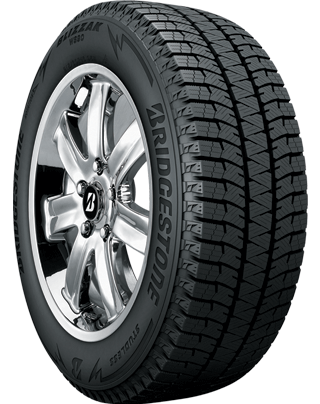
- No warranty
- Winter
- Winter
 Ecopia EP422 Plus
Ecopia EP422 Plus
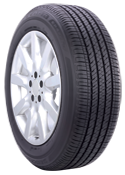
- Platinum Pact Limited Warranty
- All-Season
- Performance
 Turanza QUIETTRACK
Turanza QUIETTRACK
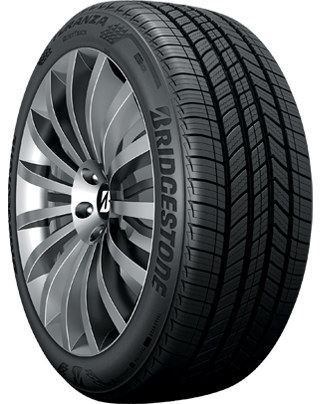
- No warranty
- All-Season
- Performance
 Turanza T005
Turanza T005
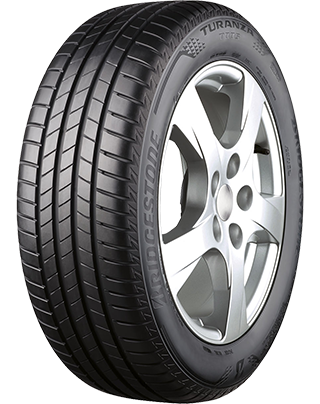
- No warranty
- Summer
- Performance
 WEATHERPEAK
WEATHERPEAK
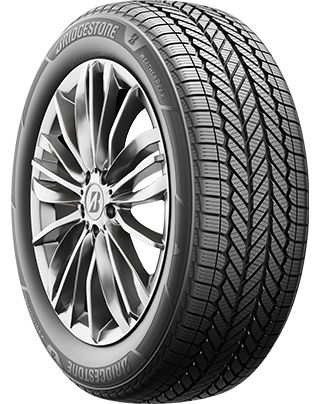
- Platinum Pact Limited Warranty
- All-Season
- Passenger Tires
 ALL SEASON
ALL SEASON

- No warranty
- All-Season
- Passenger Tires
 WEATHERGRIP
WEATHERGRIP
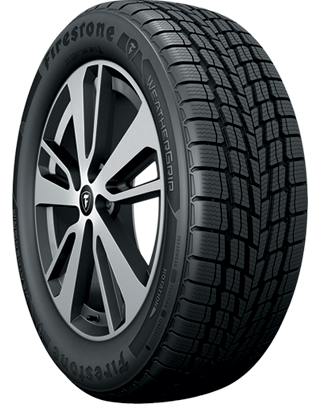
- No warranty
- All-Season
- Passenger Tires
 FT140
FT140
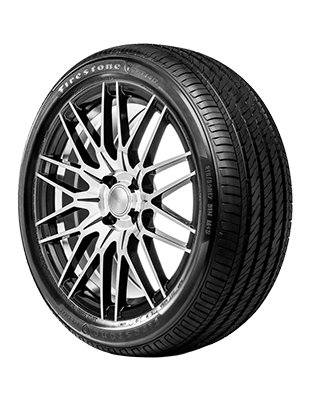
- No warranty
- All-Season
- Passenger Tires
 Winterforce 2
Winterforce 2
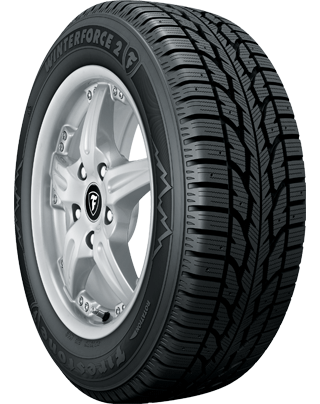
- No warranty
- Winter
- Winter

- No warranty
- All-Season
- Passenger Tires

- No warranty
- All-Season
- Passenger Tires
 Extensa A/S II
Extensa A/S II

- No warranty
- All-Season
- Passenger Tires
About 2000 Toyota Camry Tires
Apart from finding the right tire size, there are a couple of other factors to consider when buying Toyota Camry tires like where and how you drive, and what tire brand you trust most. When evaluating your driving conditions, think about where you live (countryside vs. city vs. mountains) and the kind of unexpected weather you're likely to experience. Many drivers who live in states that experience all four seasons choose to purchase two sets of tires: one set for winter, one set for summer. Other drivers prefer to purchase one all-season set to limit trips to the tire shop and make sure their vehicle is prepared in the rain, sleet, snow, or sun!
Next, consider your driving style. If you're an avid off-roader who yearns to pioneer new paths, you have very different tire needs than a highway commuter who doesn't hit the hills very often. Browse Toyota Camry tires online or come to your nearby Firestone Complete Auto Care for help selecting the tire that's right for you.
Toyota Camry Installation and More
We sell tires, but we also service them and care for all the around-the-wheel components. We're a tire store that also offers professional tire installation, maintenance, and rotation, along with complete auto care. Shop 2000 Toyota Camry tires online and schedule an installation appointment.
2000 Toyota Camry Tire Q&A
-
Why check Toyota tire inflation? Even a tiny decrease in tire pressure could impact your safety and fuel economy. Maintaining proper tire pressure can help increase fuel economy, improve braking time, and boost tire lifespan.
-
Why are there numbers on the side of my Toyota Camry tires? The numbers on your tire sidewall give you information about tire speed rating, traction, treadwear, tire size, and load carrying capacity. Chat with a tire technician to learn how to read the numbers on your Toyota tires!
-
How do I check the tread depth on my Toyota tires? Stay on top of your tire tread depth to help avoid a dangerous drive. You can check tread depth with a penny. Hold the penny so that Abraham Lincoln is facing you, then place your penny into a tread groove upside down. If you can see the top of Abe’s head, your tread is shallow and it might be time for new Toyota Camry tires. Grab a penny. Hold the so that Abe Lincon's head is facing you and his hair is pointing toward the ground. Then, place the penny into a tread groove. If you can see the top of Abe’s head, your tread is shallow and it might be time for new Toyota Camry tires.
Types of 2000 Toyota Camry Repairs
How do I learn more about auto repairs? Click on a service below to read about the types of Toyota Camry repairs we do at Firestone Complete Auto Care.
About 2000 Toyota Camry Repairs
Car repairs: for many drivers, that phrase is a dreadful one. But at Firestone Complete Auto Care, we strive to give you the excellent repair experience you deserve. Bring your 2000 Toyota Camry in for repair services and our technicians will take care of your Camry like it was their own. We’ll start by assessing what repairs may be needed, and we’ll provide you with a detailed explanation of what we recommend. If a repair isn't necessary, we won't recommend it.
What Will Toyota Camry Repairs Cost?
Several factors can affect the cost to repair your 2000 Toyota Camry, including what kind of repair you need, costs of replacement parts or repair supplies, how much labor the repair will take, and the state you live in. No matter what state you’re in, be sure to look through our offers and online coupons for repairs.
A few different aspects can influence repair costs for your 2000 Toyota Camry, like
2000 Toyota Camry Auto Repair Q&A
-
Do I need to follow Toyota's maintenance schedule? One of the best ways to prevent 2000 Toyota Camry repairs is by staying on top of your Toyota maintenance schedule. This schedule is written by the people who made your vehicle and they know best how to keep it running smoothly.
-
Should I bring my Toyota in even if I can't pinpoint the problem? No, we’re not talking about finding the best jams on the radio! You know your car best, and you’re the first person who will notice if something doesn’t feel right (like new smells, sights, or sounds coming from your car). If you sense that something is 'off,' stop in for a Courtesy Check to have these symptoms checked out ASAP. Early action could help you prevent Toyota Camry repairs.
-
Are the repairs you recommend for my Toyota actually needed? We won’t recommend a service or repair for your 2000 Toyota Camry unless we think it’s necessary to keep you safe. Want to know more about a specific recommended repair? Ask! We’re here to help.
2000 Toyota Camry Brake Repair
Your Toyota Camry engine may be strong and reliable. But if you can’t brake, it might as well be scrap metal. If you notice your brakes are squeaking or not working well, don’t wait! Safe driving is difficult when your brakes are anything but their best. What's more, waiting for things to figure themselves out can result in more damage to your brakes and your wallet. Get your 2000 Toyota Camry brakes fixed at Firestone Complete Auto Care. We offer a variety of brake services like brake pad/shoe removal and replacement, brake rotor/drum resurfacing, brake fluid exchange/bleeding, and wheel cylinder and brake caliper installation.
Answers to Your Camry Brakes Questions
-
What can cause my Camry to shake when I apply the brakes? Feeling shaking or vibrating in your Camry as you brake might indicate a few different problems, including worn brake pads or rotors, loose suspension components, damaged brake calipers, or warped rotors. Book an appointment for a free brake inspection as soon as you notice a problem with your brakes.
-
What is the average lifespan of Camry brake pads? Brake pads generally last between 30,000 and 40,000 miles. Your driving can affect how long your Camry brake pads last, though. For example, mainly driving on highways and gradually braking can help increase the lifespan of your brake pads, and carrying hefty loads or riding your brakes can shorten it.
-
Should my Camry be leaking brake fluid when the car is off? Your Camry brake system is a closed hydraulic system, so a brake fluid leak likely means you have an issue in your brake system. Over time, brake components can wear out or get damaged, causing a brake fluid leak.
Repairing Your Toyota Camry Drivetrain
Drivetrains for front, rear, and all-wheel-drive and 4WD vehicles are quite different, so you don't want to go to just anyone for drivetrain repair. You want to come see the technicians at Firestone Complete Auto Care. We can fix many 2000 Toyota Camry drivetrain components Your Camry might need driveshaft repair if you notice heavy vibrations in your floorboards, clunks when shifting, resistance when turning, or vibration as your vehicle accelerates.
2000 Toyota Camry Drivetrain Questions
-
What are the symptoms of a damaged Toyota drivetrain system? Hear noises toward the back of your Toyota Camry? See fluid leaking? Having issues turning? These could all be signs of drivetrain damage you don't want to ignore. Take action quickly to catch repairs or replacements before something more severe happens.
-
What causes a Camry’s malfunction indicator light (MIL) to illuminate? Engine problems, transmission problems, faulty sensors, electrical issues, misfire issues, and connector problems could all cause your Camry’s malfunction warning light, or better known as the check engine light, to illuminate.
-
Is a drivetrain malfunction in my Camry serious? A drivetrain malfunction in your Camry should never be taken lightly. Driving with a malfunctioning drivetrain can put you in danger and lead to further vehicle damage, so it's essential to have a qualified mechanic assess and repair the problem as soon as possible.
Wheel Alignment for 2000 Toyota Camry
With an alignment service, adjustments are made to your Toyota Camry’s suspension system, which connects the wheels with the rest of the vehicle. During the service, calculated changes are made to the angles of your tires. This is so that your tires hit the road at an optimal angle for your vehicle’s performance — just as Toyota intended. Before we adjust the alignment of your 2000 Toyota Camry, we’ll start by checking the current alignment angles. If needed, we'll adjust your wheel alignment angles to match Toyota recommendations.
Toyota Camry Alignment Questions
-
What can knock my Toyota Camry out of alignment? When it’s safe to do so, avoid driving over potholes or hitting curbs. These road obstacles can wreak havoc on your wheel alignment, as can wear and tear from rough road conditions.
-
How frequently should you get a wheel alignment for your Camry? Typically, your alignment should be checked every 6,000 miles or 6 months, whichever comes first. Double-check your Camry owner’s manual for Toyota's exact recommended schedule.
-
Do you need to get your Camry wheels aligned when you get new tires? It’s likely not a requirement to get an alignment when you install new tires on your Camry, but it's a smart idea to do so anyway. An alignment can help ensure even tire wear, smooth handling, and better fuel efficiency.
2000 Toyota Camry Engine Repair
If your 2000 Camry engine needs repairs, our expert techs will let you know what needs to be done and why before they get started. We don't start working until we have your approval. If a repair can wait, we'll let you know. But if immediate repairs are necessary for your safety, we’ll make sure that's clear, too. We seek to give you all the info you need to make a smart decision about our services. Turn to Firestone Complete Auto Care for your 2000 Camry engine repairs and you can feel confident knowing that we use Toyota-approved parts and components like the serpentine belt, engine oil seal, sensors, or another part.
2000 Toyota Camry Engine Q&A
-
Why does the check engine light come on when I start my Camry? It's okay if your check engine light comes on when you first start your vehicle. This is a sign that your vehicle is testing its circuits. The light should go off shortly. Bring your vehicle in if it doesn't.
-
Why does my Toyota engine sound different? Unusual noises can signal a problem with your Toyota Camry engine. Tapping or knocking could mean you're low on oil. Whistling could mean a belt is misaligned or there's an intake leak. Squealing can indicate a loose fan belt, and grinding might be coming from the brakes, not the engine.
-
What could damage my Toyota Camry engine? Certain driving habits can damage your engine and should be avoided. These habits include 'running on fumes,' revving the engine while still in Park, or pushing 'the pedal to the metal' before the engine has warmed up. Help sustain your engine’s performance and efficiency by staying miles away from these bad driving practices.
Get Your Toyota Camry Tire Repaired
If the road has been rough on your 2000 Toyota Camry tires, Firestone Complete Auto Care can help. There’s a chance your tire could be plugged and patched (rather than replaced). Our technicians can inspect your tire and let you know if it is safe to repair. To start, we’ll consider the location of tire damage, the type of issue, the size and scope of the damage, and the amount of wear on your tires.
If a repair on your 2000 Toyota Camry tire is feasible and safe, we’ll get to work on the steps to fix it: (1) Separate the tire from the vehicle wheel, (2) fill the puncture to keep the moisture out, and (3) re-seal the inside lining of your tire so that air won’t escape.
Toyota Camry Tire Repair Questions
-
Can I drive my Toyota on a flat tire? Driving on a flat or underinflated tire can put extra stress on your wheels and alignment. While it’s sometimes necessary to drive a short distance on a flat tire to get to a safe place, don’t take any other trips in your Camry until you can have the flat tire repaired or replaced.
-
Will a temporary sealant fix my Toyota's flat tire? A temporary sealant may be able to help you get to a repair location safely. But temporary or emergency sealants could possibly damage TPMS sensors, and in some cases may even void the warranty on your Bridgestone or Firestone tires. If your tire needs extensive repair, sealant can add time and labor costs to the process.
-
Why do my Camry tires keep losing air? Possible reasons for your Camry tires continuously losing air include a leaking valve steam, wheel damage, and a puncture or hole in the rubber.
2000 Toyota Camry Maintenance
You want your Toyota Camry to last as long as possible. If you put in the effort to keep up with proper maintenance, you could hit 200,000 miles (or beyond!) in your Camry.
2000 Toyota Camry Maintenance Information
There's no need to guess when it's time to get Camry maintenance, and no need to wait until something goes wrong. Rely on the recommended maintenance schedule that’s been created just for your 2000 Toyota Camry! Toyota knows your vehicle inside and out (they made it, after all!), so they’ve designed this schedule with your car’s unique needs in mind. Driving conditions, climate variations, and other variables can affect which scheduled maintenance services you’ll need; however, there’s a good chance that your vehicle’s recommended maintenance services will include oil changes, tire rotations, brake pad replacement, filter changes, and fluid checks and exchanges. Keeping up with routine service appointments is a great way to keep your Camry running for longer, keep you safer on the road, and maybe even save you the headache of dealing with common 2000 Toyota Camry problems in the future.
Essential Maintenance to Keep Your 2000 Toyota Camry Running Newer, Longer
Bring your 2000 Toyota Camry to Firestone Complete Auto Care for factory-recommended maintenance services and our technicians will jump right in with a Courtesy Check. This Courtesy Check can establish a baseline of what may need to be addressed during your service appointment. Each Courtesy Check includes a free battery test and an inspection of your Camry's windshield wiper blades, head and tail lights, filters, fluid levels, tires, and alignment.
Firestone Complete Auto Care is your spot for 2000 Toyota Camry maintenance. We can help you keep your vehicle (and your life!) running smoothly. Many of our locations have weekend and evening hours for your convenience.
Questions About 2000 Toyota Camry Maintenance
-
What should I do after hitting a pothole in my Toyota Camry? Check your car for pothole damage! If you’ve recently hit a pothole (or even if you don’t remember hitting one… they can be sneaky!) check your tire treads, tire sidewalls, and wheels for damage. Potholes can also knock your car out of alignment, so have your alignment checked if you suspect you’ve driven over a rough patch of road lately.
-
When does my Toyota Camry need high mileage oil? If your Toyota Camry has ticked past 75,000 miles, consider switching to high mileage oil at your next oil change to give your engine what it needs to go another 75,000 (or more!). High mileage oil: make it a high priority!
-
Can I ignore dashboard lights on my Toyota? It's better to get them addressed as soon as possible. An illuminated dashboard light means something in your vehicle isn't functioning like it should. Letting problems linger can mean bad news for your Toyota Camry, so be sure to take your car in for service as soon as you notice an illuminated dashboard light.
The Right Battery Size for a 2000 Toyota Camry
Need more info about Toyota Camry batteries?
| Battery | Engine | Warranty | Cold Cranking Amps | |
|---|---|---|---|---|
| 24F-3 | L4/2.2L | Replacement 24 months | Performance months | 650 |
| 35-2 | L4/2.2L | Replacement 36 months | Performance months | 640 |
| 24F-RP | L4/2.2L | Replacement 48 months | Performance months | 750 |
| 24F-3 | V6/3.0L | Replacement 24 months | Performance months | 650 |
| 35-2 | V6/3.0L | Replacement 36 months | Performance months | 640 |
| 24F-RP | V6/3.0L | Replacement 48 months | Performance months | 750 |
2000 Toyota Camry Car Batteries
Generally, car batteries last from three to five years. Check your battery regularly and replace it as needed so it doesn’t leave you and your Toyota Camry stranded. Look out for symptoms of a faulty car battery. A slow engine crank, an illuminated battery or check engine light, swollen battery case, corrosion-covered posts, and subpar electrical performance can all signal that your battery needs attention.
Plus, at Firestone Complete Auto Care, we’ll test your battery for free. Visit us for a complimentary battery check and, if needed, a replacement battery for your 2000 Toyota Camry. Car batteries are only one of our many strong suits. Our technicians are familiar with Toyota-specific recommendations for Camry battery cold cranking amps and reserve capacity. Get help identifying the type and size of battery that fits your car perfectly, and schedule a weekday or weekend battery replacement service for your car.
Answers to Your Toyota Camry Car Battery Questions
-
Why doesn’t my Toyota Camry battery stay charged? A battery is in its final hour when it will no longer hold a charge. The battery may be too old. Or, you may have been leaving your car doors ajar and the cabin light at night. Stop by for a complimentary battery check at your favorite Firestone Complete Auto Care and get a handle on your car battery’s health.
-
What is the average lifespan of a car battery? Car battery lifespan varies depending on a few factors, including driving conditions, accessories, how well it’s maintained, and the type of battery. On average, a car battery lasts about three to five years.
-
Why is there white, flaky stuff around my Camry’s battery post? A chemical reaction between battery acid and the air can cause a white, crusty buildup to form on the terminals of your Camry car battery. This buildup — known as corrosion — can impede the flow of electricity and cause a range of issues, from poor performance to premature battery failure.
2000 Toyota Camry Oil Change Service
Your 2000 Camry’s oil should be changed according to Toyota’s recommended oil change intervals. Outside of Toyota-recommended oil change intervals, your Camry may need an oil change if your check engine light is on, you hear knocking sounds coming from the engine, sense an oil smell in the cabin, or see an excess amount of vehicle exhaust. You might need an oil change more frequently than what’s recommended by Toyota if you regularly haul heavy loads, frequent dusty roads, go off-roading a lot, or go long distances at low speeds.
Your local Firestone Complete Auto Care has the right 2000 Toyota Camry motor oil: either synthetic or conventional. Consult Toyota's recommendations to select the right 2000 Camry oil and talk with a teammate to learn more about our oil options: Quaker State® Advanced Durability™ conventional oil, Pennzoil® High Mileage Vehicle® motor oil, Pennzoil Platinum® Full Synthetic motor oil with PurePlus™ Technology, and Shell Rotella® heavy-duty engine oil. During an oil change, a technician will change your Camry's oil, replace and recycle your used oil and oil filter, inspect the rest of your car’s filters, refill vital car fluids, and visually inspect the rest of the vehicle. Let the experts take care of your Camry’s engine by making an oil change appointment today.
2000 Toyota Camry Oil Change Questions
-
What can cause the oil light on my Toyota Camry to illuminate? Your Toyota Camry oil change reminder light might illuminate if it’s been too long since your last oil change. On the other hand, the oil pressure light might illuminate due to a clogged oil filter, a faulty oil pressure sensor, low engine oil levels, or a malfunctioning oil pump.
-
Can I change my Toyota Camry oil at home? Changing engine oil at home isn’t as simple as it’s made out to be. You’ll have to figure out how to properly dispose of the oil and buy special tools. Having your oil changed professionally can not only reduce the risk of something going wrong during the service, but it’ll also help your car perform smoothly down the road.
-
Why is my Toyota Camry exhaust smoke grayish or blue? Your engine could be burning oil due to a leak. It may be time for a pro to take a look. A leak can be caused by a variety of issues including faulty valve seals, blown piston rings, or damaged cylinder walls.
Engine Tune-Up Service for Your 2000 Toyota Camry
Periodic tune-ups can bring more power back to your Camry’s engine. The Firestone Complete Auto Care location in your community offers several Toyota Camry engine tune-up services. The standard Firestone Tune-Up is one service option. It includes a complete visual inspection of engine components, installation of new spark plugs, and a lifetime warranty on parts*. Another service option pays special attention to the filters in your Camry. Specifically, we replace the fuel filter and air filter. Our third service is a thorough cleaning of the fuel system. During this type of tune-up, we use a three-step process to get rid of harmful varnish, dirt, and carbon deposit buildup in your Camry’s fuel injectors, throttle body, and throttle plate. The result? Restored fuel system performance. Keep in mind that your Camry's mileage and maintenance history can uniquely impact its tune-up needs. Chat with a Firestone technician before you jump into a specific service to ensure your engine tune-up money is well-spent.
*Talk to a Firestone Complete Auto Care teammate for full terms and conditions on warranties.
Questions About 2000 Toyota Camry Engine Tune-Ups
-
Will it hurt my Toyota Camry to drive with old spark plugs? Replace spark plugs on time or about every 30,000 miles or so. Spark plugs are small but mighty. The spark of electricity that the plug emits across a small gap creates the ignition for the combustion needed to start your car. Without that spark, your car won't start.
-
What does a puddle underneath my Toyota Camry mean? Don't ignore puddles of fluid under your Toyota Camry. It could signal a coolant leak, brake fluid leak, or an oil leak. Let any one of these leaks linger and it could cause engine damage.
-
How frequently do the fuel injectors in my Toyota Camry need to be cleaned? Factors like fuel type and driving conditions can affect how frequently you need to clean your Camry fuel injectors. Some manufacturers recommend a fuel system cleaning as part of routine maintenance, or as needed if your vehicle is showing signs of poor fuel system performance.
Suspension Service & Repair for 2000 Toyota Camry
During the first few years you had your 2000 Toyota Camry, the ride was probably so smooth that you didn’t even think about it! Now, however, things are starting to feel a little rough. Maybe your Camry bounces, pulls to one side, or makes a weird sound when you drive over a speed bump or turn. The first sign of trouble is the best time to bring your 2000 Toyota Camry in for steering and suspension repairs. We’ll get to the source of your car problems and, if your Camry suspension system needs repair, we’ll go over the services you need and how much they will cost before we do any work.
Questions About 2000 Toyota Camry Steering & Suspension
-
Why does my Toyota Camry bounce so much? Damaged struts or shocks can't dampen road bumps properly, causing your vehicle to feel like a trampoline after each dip or bump.
-
What can cause the front end of my Camry to dip forward when I apply the brakes? When you brake, the forward momentum combined with your vehicle's weight sends a lot of force to the vehicle's front end. A bad suspension can cause all that weight and force to push the front end downward.
-
Does treadwear and tire pressure impact my Camry's steering and suspension? Proper tire care can reduce strain on the suspension system, and also alert you to the need for new tires. Uneven tire wear is one sign of steering and suspension system problems, but it can also contribute to more.
2000 Toyota Camry A/C Service Near You
Our trained technicians will do what they can to solve your 2000 Toyota Camry A/C problems. During an A/C performance check, we'll determine the condition of your 2000 Toyota Camry A/C system to determine whether repair work is needed. We’ll test overall system performance, check for any leaks, and measure the system pressure.
While your 2000 Toyota Camry’s air conditioner is being serviced, we’ll also do an A/C evacuation and recharge. To do this, one of our technicians will remove the refrigerant in your A/C system (if there is even any left to remove). Then, they’ll use Toyota’s specifications to evacuate the system. Finally, we’ll recharge the A/C system with new refrigerant.
Questions About 2000 Toyota Camry A/C Systems
-
What’s making my Camry A/C put out warm air? If your car’s air conditioning isn’t blowing cold air at all (or it tries, then turns warm), you could have a clogged expansion valve, a faulty compressor clutch, a leak, or a malfunctioning fuse in the system.
-
What causes A/C system leaks? To put it simply, age and moisture are some of the main causes of leaks in your A/C. Over time, rubber gaskets and seals can wear out, which pushes much-needed refrigerant out of your Camry’s A/C system — and lets outside moisture get in, which can take a toll on internal A/C components.
-
Why won’t my Camry’s A/C cool the vehicle when the car is stopped? There could be issues with one or more components in the air conditioning or electrical system. Your Camry may have a faulty cooling fan or low refrigerant.
2000 Toyota Camry Transmission Service
Your transmission carries power from the engine to the wheels so that you can drive at the speed you desire. Because of the transmission’s responsibility to translate the right dose of power into the right amount of speed, a small transmission issue can put a big dent in your Camry’s performance. Toyota Camry transmission problems can present themselves as shifting delays, grinding or jumping during acceleration, the car shaking on the road, or whistling noises and a burning smell coming from under the hood. If you don’t pay attention to Toyota Camry transmission trouble your could suffer a loss in fuel efficiency or find that your Camry isn’t working at all. Our technicians know how to service your 2000 Camry up to Toyota-recommended standards. Schedule an appointment at your local Firestone Complete Auto Care at the first sign of transmission problems to help keep your engine running at peak performance.
2000 Toyota Camry Transmission Q&A
-
Does my Camry's transmission fluid need to be inspected? Maintaining your Toyota Camry transmission fluid is one of the best ways to maintain your transmission's health. A general rule of thumb is to have your transmission fluid checked and changed about every 30,000 to 60,000 miles, but that timeline can change if you're hard on your Toyota. Leaks or low transmission fluid are easy to spot and affordable to repair.
-
Is it possible for transmission fluid to leak from my Toyota Camry? Yes, your Toyota Camry can develop a transmission fluid leak. As your Camry ages, parts of the transmission system might wear out or break down, leading to a leak and possible transmission issues. Common causes of transmission fluid leaks include worn seals, a damaged transmission housing, a loose or cracked transmission pan, an overfilled transmission, or faulty transmission lines.
-
Is it okay to drive a Camry with a transmission fluid leak? It’s not advisable to drive your Camry if it’s leaking transmission fluid. Your transmission system needs transmission fluid to function properly, and a leak can lead to significant problems, such as overheating or reduced performance. You might even experience transmission failure.
2000 Toyota Camry Inspections
When you bring your vehicle to Firestone Complete Auto Care for any service, we’ll automatically do a multi-point Courtesy Check. To start, one of our technicians will check the battery in your Toyota Camry to see how much charge it has left – and determine if it may fail in the near future. After we’ve inspected your Toyota Camry’s battery, we’ll visually inspect your filters, lights, wiper blades, alignment, tires, hoses, belts and fluid levels.
Every service performed at your nearest Firestone Complete Auto Care will include a Courtesy Check, but you can also request a Complete Vehicle Inspection for your 2000 Toyota Camry if you suspect there may be a bigger problem. During a Complete Vehicle Inspection, we’ll visually check everything that’s on the list for a Courtesy Check. Additionally, we’ll perform a hands-on examination of your exhaust system, steering and suspension, and brakes. The goal of this type of inspection is to unearth significant issues that might require preventative maintenance.
Depending on your location, you may be able to complete your vehicle’s safety tests or state inspection at your nearest Firestone Complete Auto Care. These inspections are governed by state automotive laws and may vary in different locations.
Common 2000 Toyota Camry Vehicle Inspection Questions
-
How do I know if my Toyota Camry needs a check-up? You drive your car, day in and day out, so you know it best. If you notice unusual engine noises or you can’t shake the feeling that something is 'off,' start with a Courtesy Check to stay ahead of potential issues.
-
Help! My 2000 Toyota Camry failed the state inspection test. Can you get it to pass? There's a good chance we can. Stop by for a full system inspection and we'll get to the root of the issue.
-
When’s the best time to have a complete vehicle inspection performed on my Toyota Camry? The best time to have a complete vehicle inspection done on your Toyota Camry is when you notice something is off but you can’t locate the issue yourself. Schedule an inspection if you experience any unusual symptoms, such as unfamiliar dashboard indicators, strange engine noises, or steering changes. An inspection can be especially beneficial before a road trip for the simple peace of mind. You can feel confident in your adventure!
2000 Toyota Camry Radiator Service
Regular, proactive service on the radiator in your 2000 Toyota Camry is a huge factor in the longevity of your engine. In fact, Toyota recommends replacing coolant/antifreeze at specific intervals, but it’s also wise to keep an eye out for signs of a failing radiator. Your radiator could be close to causing an engine breakdown if you notice leaking coolant, overheating, or an illuminated low coolant dashboard light.
When you come to Firestone Complete Auto Care, we’ll begin your radiator repair with an in-depth inspection of the cooling system in your Toyota Camry. We then do a machine-powered radiator exchange, replenish flushed chemicals, sealants, and lubricants, and then pressure check for leaks. From the heater core to the radiator cap, we’ll take excellent care of your 2000 Toyota Camry at Firestone Complete Auto Care.
Questions About Toyota Camry Radiators
-
Why is the coolant light on my Toyota dashboard on? f the coolant light illuminates on your dashboard, your engine could be overheating. Pull over to a safe area and wait for the engine to cool down. Then, head to your nearest Firestone Complete Auto Care for a coolant system check.
-
What is causing my Camry to overheat? One of the main reasons your Toyota Camry engine might overheat is because you don’t have enough coolant. Other causes include a clogged radiator, a damaged cooling fan, a malfunctioning thermostat, or a faulty water pump.
-
What can cause a Camry radiator to make boiling or rumbling sounds? Your Camry’s cooling system could contain air pockets or your radiator might be clogged. Another possibility is a faulty radiator cap, which is an easy fix!